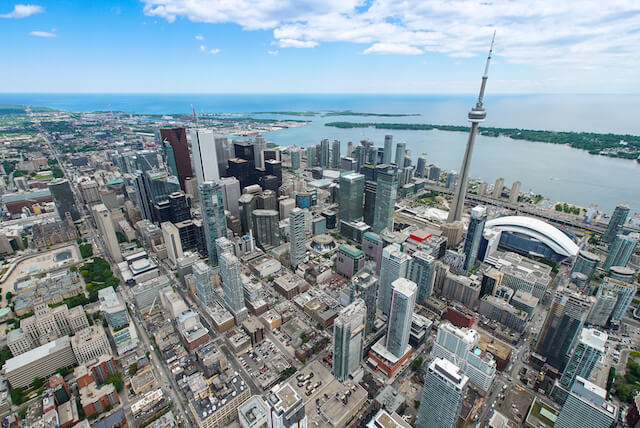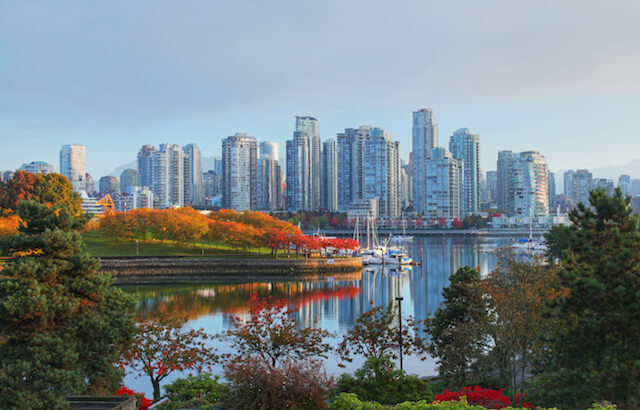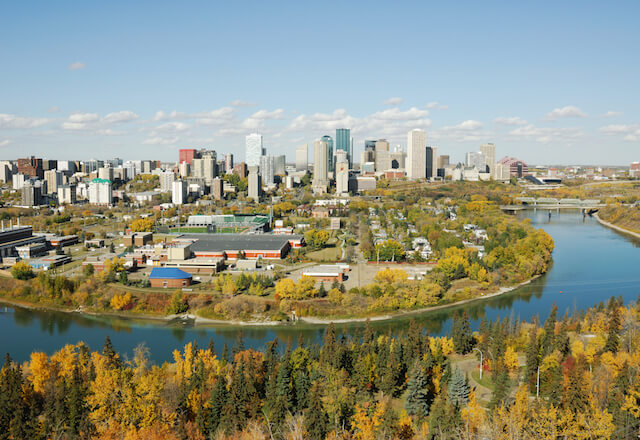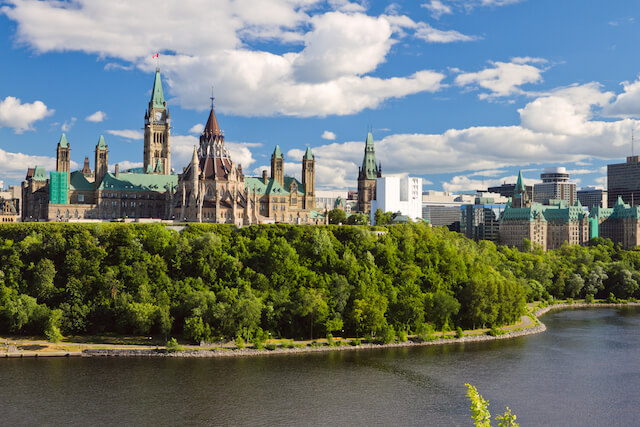
Canada features one of the best educational systems in the world with government subsidized programs that run from primary to post secondary education. Education curriculums are set at a provincial level, meaning the provincial department or ministry of education sets the education policies for each province. Education is compulsory up to the age of 16 in every province in Canada, except for Manitoba, Ontario and New Brunswick, where the compulsory age is 18, or as soon as a high school diploma has been achieved. For Canadian citizens and permanent residents, primary and secondary education is nearly 100% subsidized. The government also heavily subsidizes post secondary education in the form of grants, student loans, and scholarships.
Education in Canada usually starts with kindergarten followed by grades 1 to 12. By law, children must go to school starting at the age of 5 or 6 and until they are between 16 and 18, depending on the province or territory.
Students go from primary to secondary school between grades 6 and 8, depending on the province or territory. Students who successfully complete secondary school get a high school diploma.
The school year usually begins at the end of August and finishes toward the end of June. Children go to school from Monday to Friday during the school year (except during holidays). If you and your family arrive in Canada during the school year, contact your local school board to find a place for your children.
School boards (sometimes called school districts, school divisions or district education councils) manage the schools within a certain local area. School boards are responsible for things like: administration, facilities, personnel, and student enrolment.
To get into the school of your choice, make sure to enrol them well before the beginning of the school year. If you are enrolling your children in a Canadian school for the first time, the school or school board will assess them to determine what level they should be placed at and whether they need free support such as English or French language classes. There are also settlement workers in many schools who can help.
Since Canada is a bilingual country, English-language and French-language schools are available across the country (even in areas where one language is more commonly spoken than the other).
You should contact the ministry or department of education of the province or territory in which you will be living to learn more about English-language and French-language education options that may be available to you.
It is up to parents to choose the type of schooling for their children. Parents can choose to send their children to free public schools or pay to send them to private schools. In many areas, parents can choose between English and French school options. Parents also have the right to educate children at home, rather than in a school. For more information, contact the ministry responsible for education in your province or territory.
Canada offers a wide range of post-secondary options ranging from internationally recognized universities such as University of Toronto, University of British Columbia, and McGill University, to medium-sized colleges and universities, and to private technical and language institutes.
Almost all post-secondary programs in Canada require a formal application, and the application process and requirements can differ greatly depending on institution and program. While scholarships are available for students, applicants should be prepared to pay the tuition associated with their program.
Going back to school is also common amongst adult immigrants. Whether it's to improve language skills or learn a new area of expertise, many immigrants seek some form of post-secondary education to improve job prospects. For more information, contact the ministry responsible for education in your province or territory."
If you're looking for a home, choosing a REALTOR® should be your first step.
REALTOR.ca can help connect you with REALTORS® to find somewhere that’s the right fit for you!






Canada is home to one of the most sophisticated, mature and reliable real estate sectors in the world, with clear property rights, rigorous professional standards and a trusted land registry and title system.
Working within that sector are highly qualified, trained and licensed real estate professionals who carry the REALTOR® designation, ready to help you conduct real estate transactions in Canada. All of which makes this an excellent country in which to do business.
REALTOR.ca is Canada's most popular and trusted real estate platform displaying residential and commercial listings from REALTORS® across the country. It is important to note that REALTOR.ca is not an MLS® System. It is an advertising website that The Canadian Real Estate Association (CREA) created to give REALTORS® across Canada great listing exposure to a national and international audience.
The listing content advertised on REALTOR.ca comes from the various MLS® Systems operated by Real Estate Boards and Associations across Canada. REALTOR.ca is paid for by REALTORS® and is owned and operated in their interest by CREA.